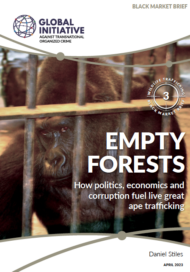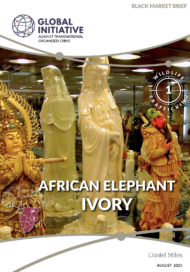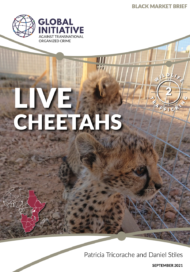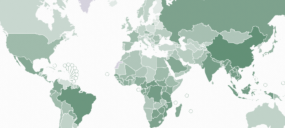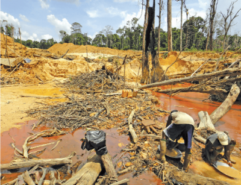Event Details
Where
Online event
Posted on 18 Apr 2023
The under-reporting of great apes seized in illegal trade incidents, both nationally and internationally, is flagged as a serious problem in bringing a true appreciation of the great ape trafficking situation to the attention of governments, international organizations, and the media. Relevant institutions in the UN system and the International Union for Conservation of Nature (IUCN) are singled out as needing improvement in their approaches concerning the illegal trade in great apes.
By far the main demand driver for removing African great apes from the wild is for bushmeat, sold in local markets or transported to urban areas. Great ape body parts, particularly skulls and hands, have a local market for use in traditional medicine or rituals, and the skulls are sometimes purchased overseas by collectors, academic institutions and artists. Several seizures have been made of great ape skulls nationally or shipped internationally.
This report deals only with live African great ape trafficking, but infant capture often results as a byproduct of bushmeat hunting. Another potential deleterious impact of the illegal great ape trade was thrust into the spotlight by the COVID-19 pandemic. The most likely cause of the pandemic is that the virus passed from an infected wild animal to humans in a food market,4 although the possibility of a leak from the Wuhan Institute of Virology is favoured by some.
Most illegal great ape imports are done without veterinary health inspections or certificates, which raises considerably the risk of introducing one or more zoo-notic diseases to humans in destination countries. The COVID-19 pandemic has raised government and public awareness about the health risks involved in the illegal wildlife trade (IWT), which may lead to better legislation aimed at controlling this frequently ignored threat.
This report describes the evolution of this recent black market, which is different in important respects from the traditional exotic animal markets that preceded it. In some countries, the political and economic interests of corrupt government and law enforcement officials facilitate the illegal trade and hinder effective actions to stop it. Even international organizations dedicated to wildlife conservation are not free from the political and economic interests that impede successful trafficking-mitigation efforts, particularly in the case of great apes.
This is the third in a series of briefs that examines market dynamics and prices of selected live and derivative products in illegal wildlife trade (IWT). These briefs are intended to present a current snapshot of product supply factors in East and Southern Africa, demand levels in consumer countries, the impact on species population numbers and overall conservation status.
These black market briefs will also consider how externalities such as statutory changes, economic conditions or the COVID-19 pandemic might influence market dynamics and prices. Market dynamics include description of the product, supply sources, means of acquisition, identification of the perpetrators, quantities traded, transport methods and routes, and changes in these elements over time.
